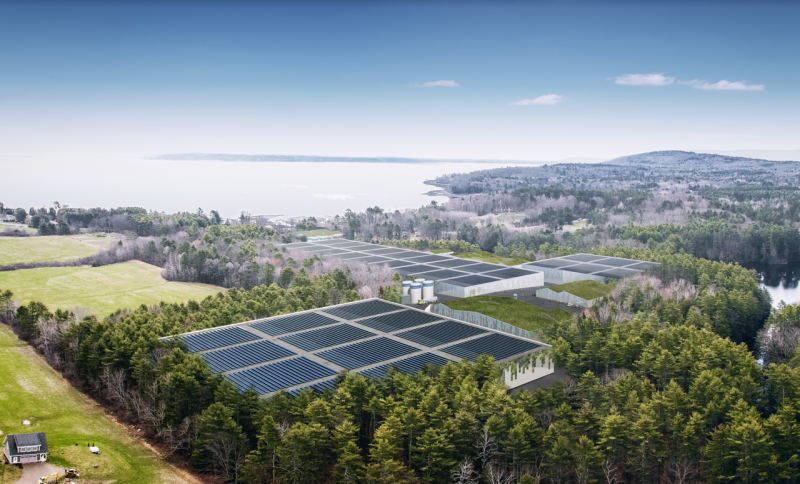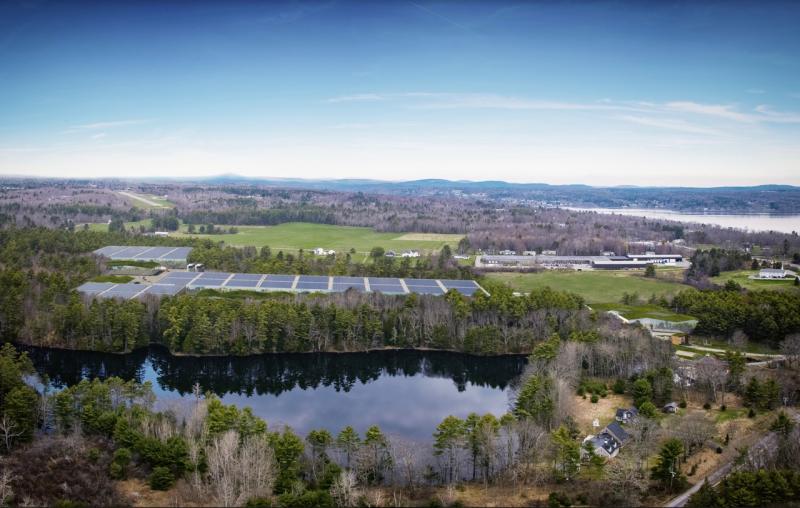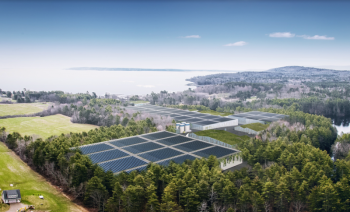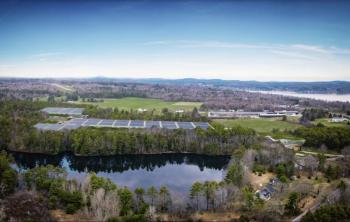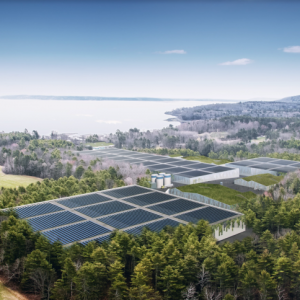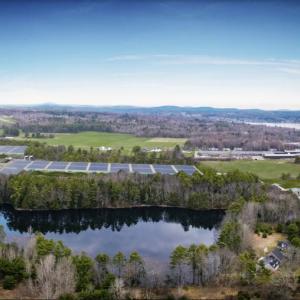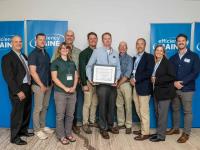Nordic Aquafarms stays the course for Belfast salmon-raising facility, opponents to take their case again to court
BELFAST — Despite another round of discussion at the Belfast Zoning Board of Appeals March 12 meeting as to whether the nonprofit Upstream Watch attained standing to contest the city’s permitting of Nordic Aquafarms project permits, the board’s decision remained a firm ‘no.’ But Upstream plans to take its arguments, as it procedurally can do, to Waldo County Superior Court.
Nordic’s intent to build a land-based aquaculture facility was first unveiled in January 2018. The project will rely on a steady supply of freshwater from the City of Belfast and local wells, and its discharge involves piping treated wastewater into Penobscot Bay.
The debate over the project has been fierce since soon after it was first introduced, and concentrates on environmental concerns, as well as a litigious battle over intertidal easement rights for the discharge pipes. Additionally, opponents said the state failed in not requiring a proper discharge license, and was not rigorous enough in applying air pollution standards.
Upstream Watch appealed the Belfast Planning Board’s Dec. 22 approval of various Nordic permits to the city’s Zoning Board of Appeals. That is the first step in municipal process allowing citizens who dispute governmental decisions to follow, prior to taking any grievances to court.
On March 4, the ZBA, whose members include Chair Peter Nesin, Michael Nickerson, Douglas Smith, Roger Pickering and Lewis Baker, convened to consider the appeal.
Following a 50-minute discussion, however, the members instead voted 4 to 1 against granting standing to Upstream, thus rejecting any hearing of the objections to the planning board approval and its process.
The majority of the board agreed that the appellant Upstream Watch had failed to submit material supporting its request for standing within the 30-day requisite period.
Motions were not made March 4 to deny the appeal, but to decide that Upstream failed to establish that it was an aggrieved party.
See attached PDF for complete Findings of Fact, March 4.
The ZBA based its reasoning on the ordinance interpretation that an aggrieved party is a person whose land is directly or indirectly affected by the granting or denial of a city permit or variance.
The ZBA cited the Upstream Watch application for standing, which said that Upstream had been qualified by the Belfast Planning Board as an interested party, and had participated in that board’s proceedings as such.
Furthermore, Upstream had said it was formed to restore the Little River that abuts the project and volunteers use the trails, bay and river.
Nordic had argued during the 30-day appeal filing period that Upstream lacked standing, and its attorney said Upstream did not produce evidence that its members were affected by particularized injury — that it affects Upstream members in a personal and individual way.
While Upstream did respond with affidavits to the contrary, they were not submitted within the 30-day period, and arrived at the city hall after Jan. 21.
The board members agreed that the city ordinance provided ground rules for filing appeals.
At the March 12 meeting of the ZBA, convened to approved the Findings and Decision made March 4, Chair Peter Nesin proposed a review of the issue of standing in relation to Upstream, and suggested the ZBA consult with its attorney behind closed doors.
Nesin said at the outset of the March 12 meeting that he wanted to clarify his position taken on March 4.
The ZBA is quasi-judicial, “which means that we act as judges in that we are expected to take an impartial and fair approach to our proceedings and findings,” he said, adding that it was not fair or impartial to dismiss the possibility of standing, “because an appellant did not properly fill out their application form.”
He continued: “In this case, we had a reasonable expectation that the opponent would be able to properly attempt to make the case for standing to establish aggrieved party on the application but if this were somebody who may not be familiar with establishing aggrieved party we should certainly give them a chance to make their case for standing regardless of whether or not it was stated on the application form.”
Nesin furthermore said that with the material from the Belfast Planning Board, “we can find that the Nordic operation will draw large amounts of water from the local aquifer. This presents a real expectation that this could adversely affect wells in the area of Nordic, even those who are not abutters.”
The fact that the Planning Board mandated permit conditions to require that Nordic drill new wells, “if this event should occur,” is enough to establish aggrieved party status, he said.
Nesin called for rescinding the March 4 motion to refuse granting standing to Upstream, and instead allow the nonprofit members to make their case.
“….If not I believe that this case will be appealed to Superior Court, where it would probably be found that they should certainly have standing and it will be remanded back to us…,” he said.
That would, said Nesin, result in the ZBA having “egg on our face.”
A motion was made to that effect, earning an objection by Nordic’s attorney, Joanne Tourangeau, who is with the Portland-based firm Drummond Woodsum.
She argued that the ZBA’s business was to be conducted in public, as had been the approach throughout the three-year Nordic application permit process.
Belfast City Attorney Bill Kelly, who had been counsel for the Planning Board, was skeptical of the closed door session, as well, saying it was unusual to conduct a deliberative discussion about a prior discussion.
“I have a hard time understanding what could be accomplished in executive session that could not be done in public,” he said.
But counsel for the ZBA, Kate Grossman, who is with the firm Farrell, Rosenblatt and Russell, countered that a board that wants to consult with its attorney has to the right to do so.
“I disagree with the idea that holding an executive session lessens the transparency of the decision-making process,” she said, adding later, “As board counsel, I would discourage you feeling cowed from seeking your attorney’s counsel.”
The ZBA then voted on the motion to enter executive session with two in favor and three opposed.
The other ZBA members then delivered their opinions, which again reflected the March 4 consensus that Upstream failed to state on the appeals application information about how its members attained aggrieved party status by the 30-day deadline.
Amy Grant, of Upstream, said March 15 that the organization applauded the chair and other board member for wanting to consult with their attorney, “so they could understand how the ZBA decision impacts the city and perhaps find a way to limit that impact.”
She added: “It’s unfortunate that the attorney for Nordic and the attorney for the planning board argued so forcefully against this and for making the ZBA feel as if they were doing something wrong by wanting to speak with their attorney in private.”
After the March 4 ZBA decision, Upstream announced that it would appeal to the courts.
Reach Editorial Director Lynda Clancy at lyndaclancy@penbaypilot.com; 207-706-6657
Event Date
Address
United States

